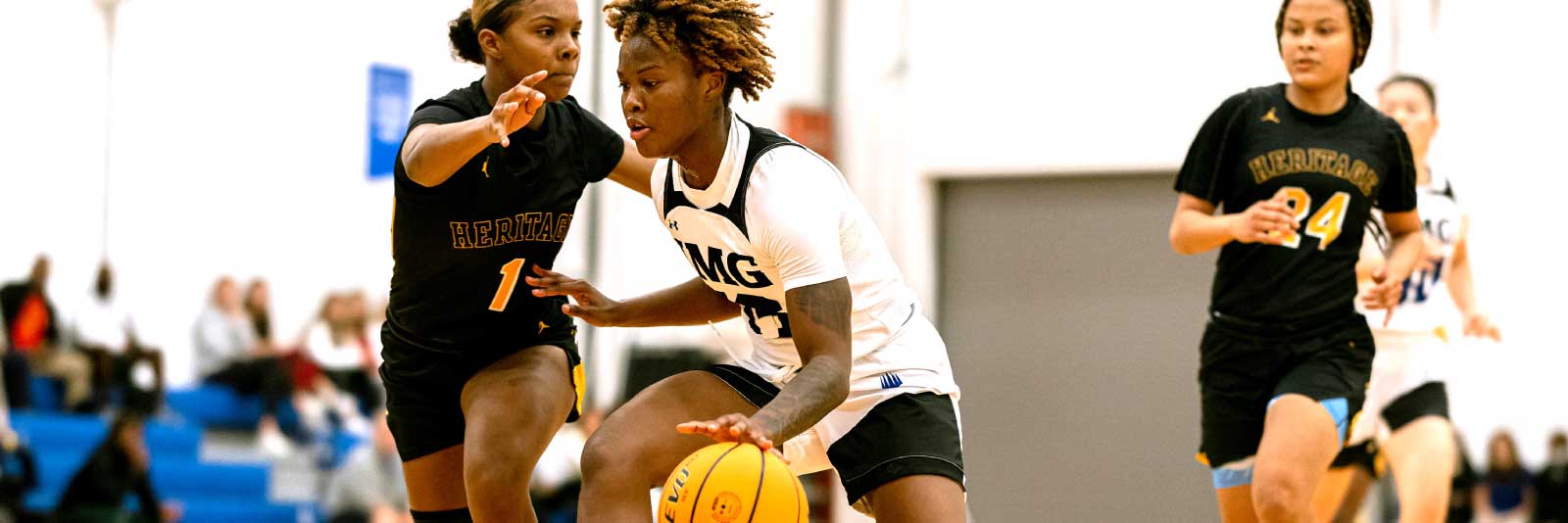NCAA Division I Women’s Basketball Colleges

Women’s basketball recruits who are interested in pursuing their sport at a highly competitive level—and have the athletic skills and physical height to match—should pursue opportunities at NCAA D1 women’s basketball colleges. Not only are these schools some of the most popular and well-known across the nation, they also offer great perks—well-funded athletic facilities to work on your skills, top of the line coaches to take your game to the next level and both partial and full athletic scholarships to cover some or most of your college costs.
Sure, the rewards at D1 women’s basketball colleges are great—but it’s extremely difficult to get there. Only about 1.2 percent of the nation’s 400,000+ high-school women’s basketball athletes go on to play for a D1 women’s basketball program. Likewise, the competition doesn’t stop when you land a roster spot—recruits who are often used to being among the best players on their high-school or club teams quickly realize that they’re now playing with and against the best players in the nation, if not the world. Grueling practices, demanding schedules, and a huge time commitment are just some of the requirements of getting to—and staying at—these D1 women’s basketball schools. Recruits who want to dedicate most if not all their time, energy and focus to their sport will be in good company—at D1 basketball schools, your sport is your life. For more information, check out the basketball recruiting rankings page.
How many D1 women’s basketball colleges are there?
For recruits interested in competing at D1 women’s basketball colleges, there are plenty of options—there are currently 351 member basketball colleges across the U.S. However, because college coaches also recruit JUCO athletes to round out their Division 1 women’s basketball teams, landing a roster spot—especially as an incoming college freshman—requires strong athleticism, excellent academic standing and the utmost dedication to the sport and the recruiting process.
As you create your target list, it’s a good idea to monitor your position-specific measurables, like whether your stats fall in line with D1 recruiting guidelines, as well as your athletic build. For instance, does your height align with how tall current players are on D1 rosters? Student-athletes should also make sure their grades and test scores don’t just meet NCAA eligibility requirements but exceed them. Higher GPA’s and stronger ACT/SAT scores will help you get admitted, gain a competitive edge in the recruiting process and potentially land an academic or merit-based scholarship. To help you get started, look at NCSA’s D1 women’s basketball rankings and then search through our full list of D1 women’s basketball colleges below. For more information, check out the AAU girls basketball page.
D1 women’s basketball rankings and best Division 1 women’s basketball colleges
Many organizations offer NCAA D1 women’s basketball rankings, including the NCAA and USA Today Sports. Here are the best Division 1 women’s basketball colleges, according to the NCSA Power Rankings:
- Stanford University
- Princeton University
- Harvard University
- University of Florida
- Columbia University
- Yale University
- University of Pennsylvania – Penn
- University of California – Los Angeles – UCLA
- University of California – Berkeley
- University of Michigan
Remember—don’t just limit your target list to the top 10 or 20 D1 women’s basketball schools. Instead, consider several factors when doing your research and focus on qualities that matter most to you. For instance, do you want a school closer to home or on the opposite coast? Would you prefer a more rural or suburban, “college town” campus or an urban city environment? As you start homing in on these smaller details, you’re more likely to not only land a roster spot at just any D1 women’s basketball college, but also one that’s the best athletic, academic and social fit.